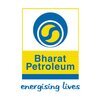Filter interviews by
Clear (1)
Indian Oil Corporation Control & Instrumentation Engineer Interview Questions and Answers
Indian Oil Corporation Control & Instrumentation Engineer Interview Experiences
2 interviews found
I applied via Referral and was interviewed before Jan 2022. There were 2 interview rounds.
Interview Preparation Tips
Top trending discussions






Interview questions from similar companies

Control & Instrumentation Engineer Interview Questions & Answers
Reliance Industriesposted on 14 Nov 2022
Interview Preparation Tips

Control & Instrumentation Engineer Interview Questions & Answers
Reliance Industriesposted on 15 Apr 2023

Interview Preparation Tips
More learning

Interview Preparation Tips

I applied via Campus Placement and was interviewed in Nov 2020. There were 3 interview rounds.
Interview Questionnaire
1 Question
- Q1. OOP concepts, Networking basics,
Interview Preparation Tips

I applied via Newspaper Ad and was interviewed before Jun 2021. There were 2 interview rounds.
Interview Preparation Tips

I appeared for an interview in Mar 2017.
Interview Questionnaire
2 Questions
- Q1. 1. Give your brief introduction. 2. Tell about your projects. 3. Do you think that demonetization was effective? 4. How do you implement effectively digital currency so that everyone can use it?
- Q2. 1. Introduction 2. Tell me something about you which is interesting.
- Ans.
I am a certified scuba diver and have explored coral reefs in multiple countries.
Certified scuba diver
Explored coral reefs in multiple countries
Passionate about marine life and conservation
Interview Preparation Tips
Experience: The test comprised of total 30 questions. There were some questions of quantitative, reasoning abd verbal aptitude. There were some questions of C language and data structures and some were from Digital Electronics and communications. All questions were MCQs.
Duration: 30 minutes
Total Questions: 30
Round: Technical Interview
Experience: This interview experience was quite interesting for me because i had no technical project to discuss with them. Do wisely i diverted interview towards demonetization and digital economy and i answered in detail with good example. So he got impressed. A guy from my batch gaving very nice projects in commucation engineering got rejected in this round because he didn't know data structures.
Round: HR Interview
Experience: The HR guy was very chill and was in hurry so he didn't asked something very hard question to be answerable. He discuseed about my family background and my future plans.
Skills: Communication And Confidence
College Name: NIT Kurukshetra

I applied via Referral and was interviewed in May 2021. There was 1 interview round.
Interview Questionnaire
1 Question
- Q1. Why do you want to join hcl and also why hr ?
Interview Preparation Tips
Indian Oil Corporation Interview FAQs
Some of the top questions asked at the Indian Oil Corporation Control & Instrumentation Engineer interview -
Recently Viewed
Tell us how to improve this page.
Indian Oil Corporation Interviews By Designations
- Indian Oil Corporation Technician Apprentice Interview Questions
- Indian Oil Corporation Safety Officer Interview Questions
- Indian Oil Corporation Intern Interview Questions
- Indian Oil Corporation Officer Interview Questions
- Indian Oil Corporation Technician Apprentice Trainee Interview Questions
- Indian Oil Corporation Apprentice Trainee Interview Questions
- Indian Oil Corporation Apprenticeship Trainee Interview Questions
- Indian Oil Corporation Electrical Supervisor Interview Questions
- Show more
Interview Questions for Popular Designations
- Instrumentation Technician Interview Questions
- Instrumentation Supervisor Interview Questions
- Manager Instrumentation Interview Questions
- Senior Instrumentation Technician Interview Questions
- Electrical & Instrumentation Engineer Interview Questions
- QC Inspector Instrumentation Interview Questions
- Assistant Manager Instrumentation Interview Questions
- Lead Instrumentation Engineer Interview Questions
- Show more
Indian Oil Corporation Control & Instrumentation Engineer Interview Process
based on 2 interviews
Interview experience
Interview Questions from Similar Companies
Fast track your campus placements
Indian Oil Corporation Control & Instrumentation Engineer Reviews and Ratings
based on 1 review
Rating in categories
|
Assistant Manager
297
salaries
| ₹10 L/yr - ₹33 L/yr |
|
Apprentice Trainee
137
salaries
| ₹0.9 L/yr - ₹3.6 L/yr |
|
Project Assistant
123
salaries
| ₹2.5 L/yr - ₹4.3 L/yr |
|
Manager
117
salaries
| ₹1.2 L/yr - ₹6.8 L/yr |
|
Computer Operator
115
salaries
| ₹1 L/yr - ₹4.3 L/yr |

GAIL

Bharat Petroleum

Hindustan Petroleum

Reliance Industries
- Home >
- Interviews >
- Indian Oil Corporation Interview Questions >
- Indian Oil Corporation Control & Instrumentation Engineer Interview Questions



















